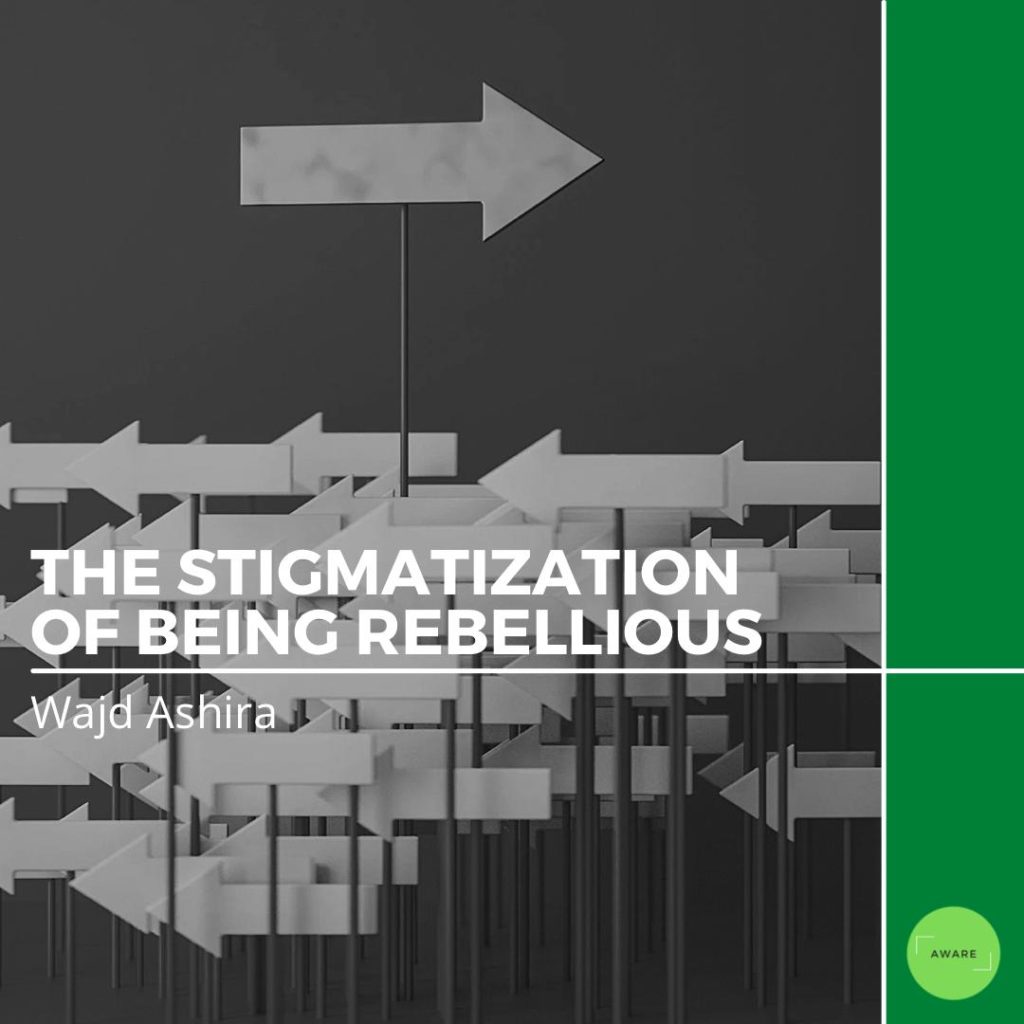Rebellion is considered as an uprising to a certain oppressive political leader or an endeavor to overthrow a certain government. Likewise, a rebel in society is someone who completely rejects the status quo and does not abide by it – the rejection being the uprising and the norms being the oppressive government. In the MENA region, people who deviate from the norm are negatively perceived as “mad” people that are supposedly whitewashed or westernized because they advocate for basic human decency. Being a rebel in such a conservative community is not easy; thus, their mental well-being can be immensely affected by the ideologies that are present in the community. Also, what may be deemed as a rebel in a certain community may not be deemed as a rebel in another one. It all varies on how accepting and agreeable the community is. This also means that not all rebels are stigmatized or shamed for wanting radical change in the society.
Advantages of Rebels
Rebels are integral aspects for progression in a certain community, system, or organization. Their purpose is not to completely eradicate the current notions of society but to ameliorate or improve them, making them less prejudiced. If you are a rebel, you are directly an activist. Nonetheless, activists raise so much awareness on social media and endorse anti-discriminative actions. Whilst many might view rebels as attention-seekers that are in dire need of the spotlight, they tend to be seen by others as brave and fierce people that challenge pre-existing outrageous ideologies. The aforementioned bigotry can include any sort of prejudice or discrimination that has been normalized, especially in the MENA region. For instance, racist comments or slurs are constantly thrown everywhere. When a rebel calls the said people out, they can learn how to unlearn these notions and beliefs. Not to mention that the domino effect does also play a role. If a rebel successfully alters the mindset of three to four people, then those people would attempt to do the same, which would lead to a compilation of malice-free mindsets.
Cons of the Stigma
Rebels do not always have the complete motivation and urge to “change the world”. Obviously, baby steps are required for substantial change. The ambition of a rebel to create change may push other people away from them since they accept the norms and follow them. Unfortunately, the rebel may lose many friends due to them not wanting to be placed in the spotlight. As a result, when the rebel starts to show their true colors, their loved ones may push them away to protect themselves. Furthermore, as previously mentioned, rebels desire alterations to the present norms, so they would not want to affiliate themselves with close-minded or conservative people that support the current prevailing notions. Moreover, the rebel may choose to isolate themselves as they would not have many friends to confide in or people who share their beliefs.
Mental Well-Being of Rebels
What many people do not comprehend is that those rebels are being their true selves, and there are many assets for being their authentic self. A study published by Louisiana Tech University showed that people are more satisfied with their life when they are being their authentic selves. Although being a rebel may have its cons because of the uproar in society, it genuinely aids a person in finding their true purpose and their own unique identity. Moreover, rebels may very likely be responding to the lingering thought that they are not enough because of how much society has made them believe so. The rebels had to put up a front and pretend to fit in when they really did not.
